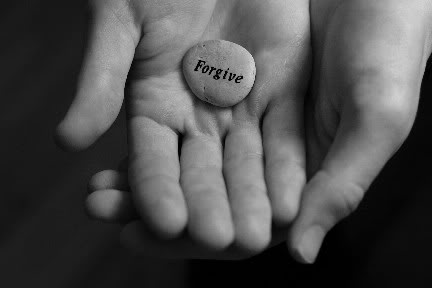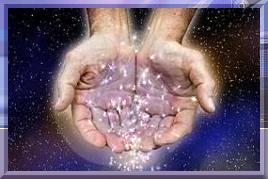|
The Power of Forgiveness Can Change Your Life
Forgiveness is an essential key to finding freedom.
Unforgiveness is like an emotional prison - we lock up our negative feelings about a person and we hold onto them. It actually ties us to that person - even if the person is someone we'd rather forget.
The good news is - we hold the key to the prison doors. By an act of our will, we can open the door and release what is being held. What we often don't realize until later is that the one who is being set free is ourselves.
Carrying a grudge (another word for unforgiveness) actually weighs us down internally. We think we are holding the other person in the prison cell, but in reality we are holding a part of our soul, mind or emotions in that cell. Forgiveness unlocks the cell and releases the negative association we have with that person.
Many people have a misconception about forgiveness. They assume that if they forgive, they are saying that what happened didn't really matter or that the fact that they were hurt is insignificant. That's not true. Forgiveness starts with an acknowledgement that what happened was hurtful. It assigns responsibility for the pain. By acknowledging what happened, you can begin to release the negative emotions associated with the pain and in time, you can choose to let them go.

"Forgiveness is a gift
you give yourself." - Suzanne Somers
You may think, "What they did to me is unforgivable - how can I let go of it just like that?"
First of all, you don't let go of it "just like that". Forgiveness is a process that takes time and effort. Depending on the depth of the pain, it could take days, months or sometimes even years to release it. Each person's process is their own - it takes as long as it takes.
Yes, what they did was really bad. Somehow we feel that by holding onto the offense, it somehow "makes them pay" for what they did. That couldn't be further from the truth. The other person is not the one suffering - YOU ARE.
"Resentment is like drinking poison and expecting the other person to die." - Carrie Fisher.
Internally, what you really want is justice. What happened was wrong - and your soul wants it to be recognized and acknowledged. Too often the person who hurt us is not willing or able to do this - but we can do it for ourselves.
Do you need to "feel forgiving" in order to forgive? No. Forgiveness is an act of your will. Sometimes you will feel compassion or understanding later, but you do not have to feel a certain way to forgive. You only have to be willing to forgive.
When you are ready ...
1. Acknowledge the pain. Write it out or tell it to a trusted friend. Specifically think about why it hurt. What message did you receive from this negative event?
2. Recognize responsibility. Who did what and how did it make you feel? Even if you are by yourself, it can be very freeing to say it out loud. Imagine you are talking to the person who hurt you. Example: "I was offended by your comments about my recent weight gain, Aunt Susie. I respected you. Your opinion matters to me and that's why it hurt so much. I felt judged by you."
If your emotions come up at this point, let them out. You can cry or beat a pillow in anger. It's important to respect your right to feel hurt. You matter!
3. Offer forgiveness. Saying it out loud is especially helpful here - it confirms to your soul that you really mean it. Example: "I forgive you, Aunt Susie, for making me feel judged and ugly by the comments you made about my weight. I release you from the harm you caused me. I choose to let go of the anger and shame I felt."
Note: Sometimes forgiveness takes time. You might need to speak your forgiveness out loud or in your mind each time the memory of the pain surfaces. Eventually, the hurt will recede and all that will be left is a painless memory. Forgiveness is an act of your will - your emotions eventually will follow.
Should you tell the person who offended you that you forgive them? Not necessarily. If you are in a close relationship and the person has acknowledged their fault in causing you pain, then it could be very healing to let them know when you've forgiven them. However, in many cases, the person is no longer around. They don't need to know - this is for your benefit, remember?
After you've forgiven someone, does that mean you need to continue the relationship? Keep in mind that choosing to forgive someone does not necessarily mean you need to continue your relationship with them. If someone has proven to be untrustworthy or hurtful towards you, you don't have to associate with them. Forgiveness and trust are two separate issues. Forgiveness does not "magically" make everything okay.
One person most people need to forgive and yet often "forget" to do so is ... themselves. This is an important step in finding freedom. And for those who were raised with a faith tradition that made certain things "God's fault" (i.e. someone's death), you may need to forgive "God". It may feel silly doing so, but if you find that you are very cynical and bitter towards matters of faith, chances are you are holding negative emotions against the concept of God that was presented to you as a child. It's time to let that go too. Your heart will thank you.
If you have questions about forgiveness, feel free to contact Sandy. It's not an easy topic, but it is essential to those who are seeking personal freedom.
The article above is an excerpt from Sandy's book, Freedom through Forgiveness: The Power of Forgiveness Can Change Your Life. For more information about forgiveness, including how to order the book, please click here. This excerpt also appears in 30 Days to Freedom which can be found here.
Please feel free to forward this page to someone who needs the freedom that forgiveness brings.
|
 |




